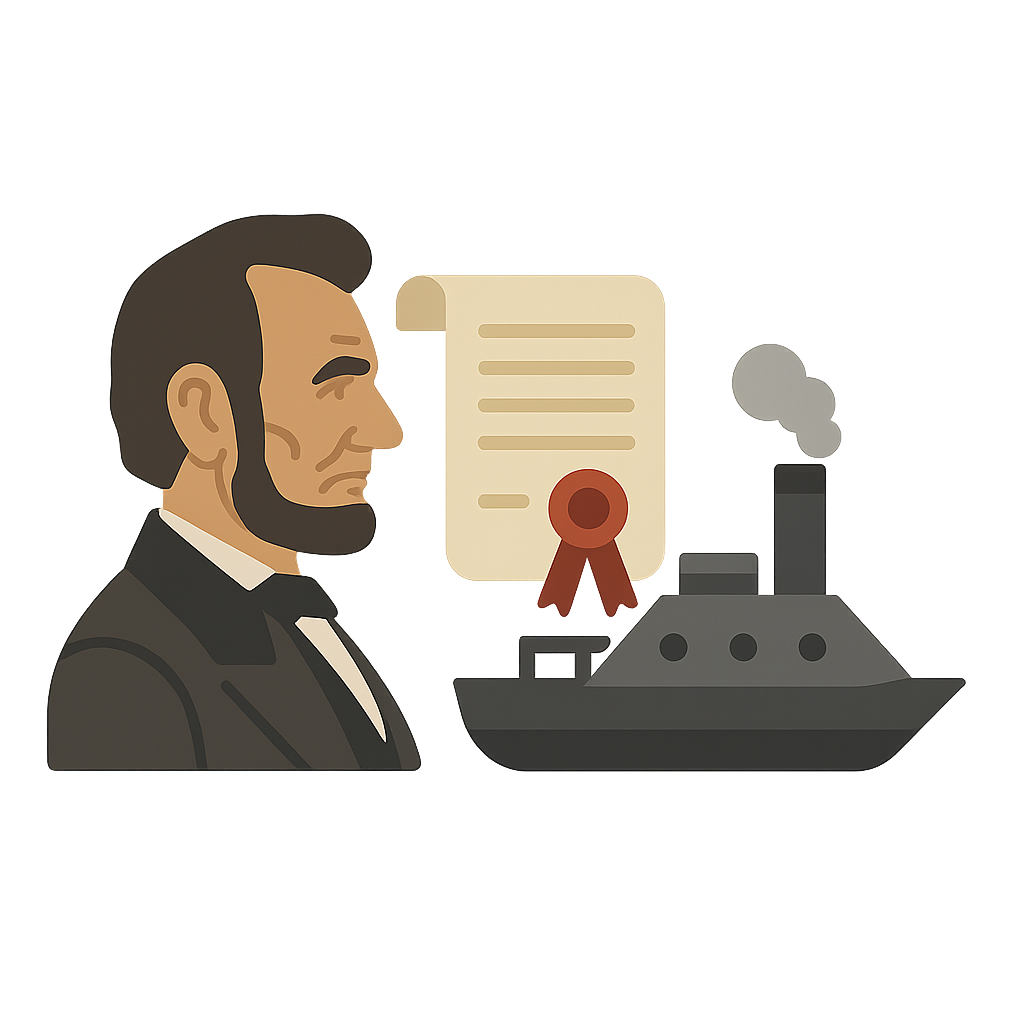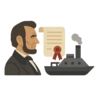Abraham Lincoln and the House Divided
My name is Abraham Lincoln, and I had the profound honor and the immense burden of serving as the sixteenth president of the United States. I have always loved this nation with my entire being. I saw it not just as a collection of states, but as a great family, bound together by a shared dream of liberty and justice. However, when I was a boy and growing into a man, our family was wrestling with a deep and painful disagreement. It was about the institution of slavery, the terrible practice of one person owning another, forcing them to work without pay and denying them their freedom. I believed with every fiber of my being that this was a moral stain on our nation's soul and a contradiction to the very idea that all men are created equal. This disagreement wasn't a quiet one; it was a constant, rumbling storm on the horizon.
In the autumn of 1860, I was elected president. For many, this was a moment of hope, a chance to steer our country toward a better future. But for others, particularly in the southern states where slavery was the foundation of their economy and way of life, my election was seen as a grave threat. The storm that had been gathering for so long finally broke. One by one, southern states began to declare that they were leaving our national family. They formed their own confederacy, and just like that, our house was divided against itself. I cannot describe the profound sadness that settled in my heart. The idea of brother fighting against brother, of our great experiment in democracy crumbling into dust, was a weight heavier than any I had ever known. I knew I had to do everything in my power to hold our family together, to preserve the Union, but I feared the terrible cost of the conflict to come.
The years that followed were a time of great and terrible struggle. As president, the full weight of the Civil War rested on my shoulders. My days were filled with meetings with generals, with planning strategies, and with signing orders that sent brave young men into battle. My nights were often sleepless, spent reading telegraphs from the front lines that brought news of both victories and devastating losses. Each report of a life lost felt like a personal blow. I saw the faces of the soldiers' mothers and wives in my mind, and I prayed for the strength to lead our nation through its darkest hour. The pressure was immense, but I held onto the belief that our cause was just. We were not just fighting to piece our country back together; we were fighting for the very soul of America. It was a test to see if a nation conceived in liberty could long endure.
For the first part of the war, my primary goal was to save the Union at all costs. But as the conflict raged on, I knew we had to confront the root of the division. On January 1, 1863, I made one of the most important decisions of my life. I issued the Emancipation Proclamation, declaring that all enslaved people in the rebellious states were, and henceforward shall be, free. This transformed the war. It was no longer just a fight to preserve a map; it was now a fight for human freedom. Later that year, in November 1863, I traveled to a small town in Pennsylvania that had been the site of a horrific battle. It was called Gettysburg. I was asked to say a few words to dedicate the soldiers' cemetery there. Standing on that sacred ground, surrounded by the graves of those who had given their last full measure of devotion, I tried to remind everyone what we were truly fighting for. I wanted to ensure that their sacrifice would not be in vain, and that our nation would have a new birth of freedom, so that a government 'of the people, by the people, for the people, shall not perish from the earth.'
Finally, in the spring of April 1865, the long and bloody war came to an end. A feeling of immense relief washed over the country, but I knew it was not a time for celebration or for punishing those who had fought against us. Our family was broken, and it needed to be healed. In my second inaugural address a month earlier, I had shared my deepest hope for our future. I said we must proceed 'With malice toward none, with charity for all... to bind up the nation's wounds.' My goal was not to win a victory, but to win the peace. It was time to welcome the southern states back into the fold, to rebuild what had been destroyed, and to begin the difficult work of creating a single, unified nation once more.
The cost of the war was staggering, and its scars would take generations to fade. But from that terrible conflict, a new America was born. Our Union was preserved, stronger and more resilient than before. And most importantly, millions of people were finally freed from the bonds of slavery. The promise of our nation, that all are created equal, was now closer to being a reality for all. My life was cut short not long after the war's end, but my hope for America has never died. The work of perfecting our Union continues, and it is up to every generation to carry forward the torch of freedom, justice, and equality for all.
Reading Comprehension Questions
Click to see answer



